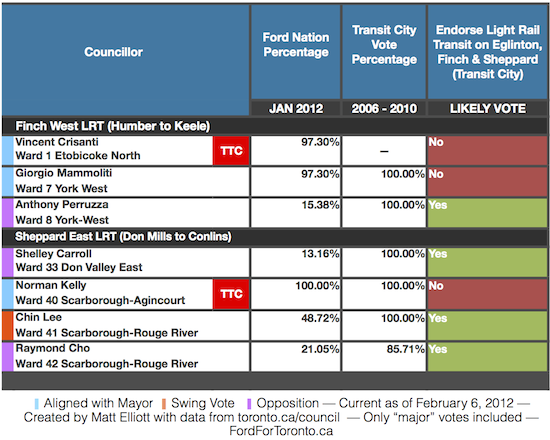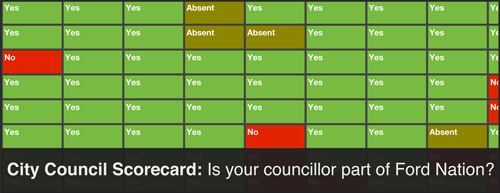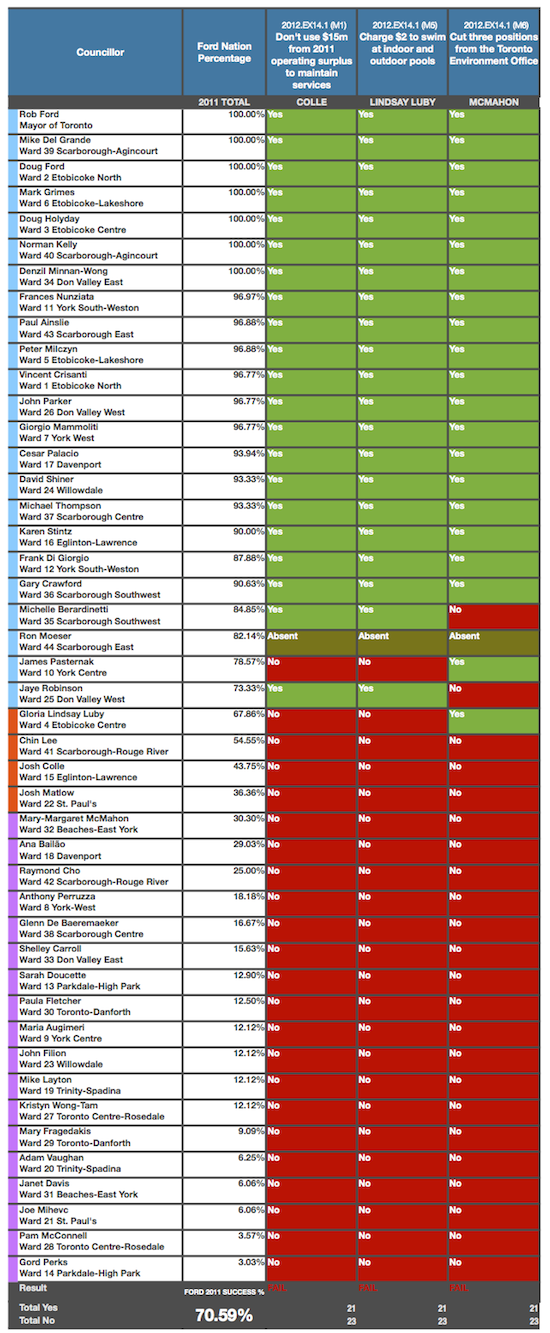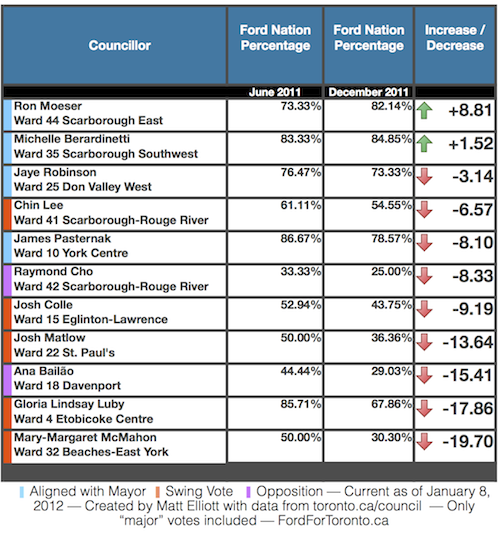
Councillors Against Transit? Some councillors are set to vote against transit projects that would run through their wards. (The Sheppard East LRT will also skirt the wards of Councillors Del Grande & Moeser.)
Updated Feb 7 2012: The voting chart at the bottom of this post has been updated based on new information. Councillors Moeser and Lindsay Luby are both likely to miss the meeting. Frances Nunziata confirmed which was she was leaning when she called Karen Stintz a ‘traitor’ at council yesterday. And Mark Grimes is Mark Grimes. Jaye Robinson remains the only undecided, and I could see her going either way.
It’s official. As reported by Inside Toronto’s David Nickle:
Toronto Transit Commission Chair Karen Stintz and 22 other city councillors have demanded a special Toronto City Council meeting on Wednesday, Feb. 8, to consider whether to bury the Scarborough-Eglinton Crosstown LRT through Scarborough.
Stintz, who represents Eglinton-Lawrence on council, presented the petition to the city clerk prior to the start of the city’s regular council meeting Monday, Feb. 6.
via TTC chair Stintz calls for special council meeting on Transit City | InsideToronto.com.
Twenty-four councillors signed Stintz’s petition, with James Pasternak and Gloria Lindsay Luby standing as the difference-makers. I expected to see John Parker’s name on the list — he’s been vocal throughout this debate — but he seems to have opted to play it safe. Still, there’s a good chance he’ll vote in favour of the agenda item on Wednesday.
With the majority in place, our attention now turns to the motley crew of councillors who have decided to stick with the Fords even in the face of almost-certain defeat. For some, the motive is easy to understand. Scarborough councillors like Michael Thompson and Michelle Berardinetti have nothing to lose by supporting gold-plated underground transit through Scarborough, even if that support means that other projects lose out. And councillors like Peter Milczyn and Cesar Palacio are so far removed from the projects on the table that they might as well protect their political position and side with the mayor.
But for other councillors, motive is harder to pin down.
Take the councillors in the table above. All of them represent wards that lost out on transit when Rob Ford made his unilateral decision to cancel the Finch West and Sheppard East LRT projects. And yet, even knowing what’s at stake, three of them seem likely to double down on their support for the mayor and vote against bringing improved transit to their constituents on Wednesday.
You can almost excuse Norman Kelly and Giorgio Mammoliti. They’re council veterans unlikely to face electoral consequence no matter what they do. Kelly also has the spectre of a Sheppard Subway to point at. And no one expects Mammoliti make rational decisions.
But for Councillor Vincent Crisanti — still a quiet council newbie with a near-perfect record of Ford support — his vote on Wednesday could easily be seen as a slight against the neighbourhoods he represents in Ward 1. He’s got to know that any talk of underground transit into northwest Etobicoke is pure fantasy. Even the biggest optimist would be hard-pressed to include a Finch subway project in a fifty-year timeframe. He also knows well that the Finch bus route is one of the most crowded and uncomfortable in the city. And he knows that Humber College — a major driver of economic activity in his area — has long advocated for improved transit connections to their campus, something the LRT was set to provide.
Last February, the President of Humber College expressed regret over the mayor’s decision to kill the Finch West LRT project, telling the campus newspaper, “We had a plan in terms of the previous government. Now we don’t have a plan, and we have yet to see one.”
Crisanti has a chance to play a role in bringing that plan to Humber College this week. He’s got a chance to improve transit for the community that elected him. It’s a shame he’s going to pass on it.




